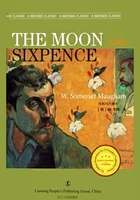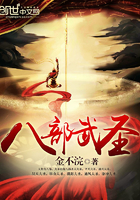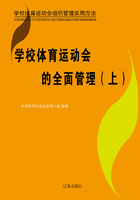When the author called the entrepreneur's cabin, he was greeted with a warm, hearty hello.
After introducing himself, the author said, "I'm sorry to disturb you at your cabin, Mr. Murray, but your assistant Evelyn told me you wouldn't mind answering a few questions."
"Please, call me Phil," the entrepreneur said. "And by the way, I'm a big fan of your books."
Within a couple of minutes, the author felt like he was talking to an old friend. When the author explained why he was calling, he could sense Phil's excitement.
"I've been interested for a long time in 'the missing link,'" said the entrepreneur.
"The what?" the author asked.
"The missing link," repeated Phil. "That's what's lacking in the learning process when we just read books, listen to CDs, or attend seminars."
"The missing link-that's exactly what I want to find," said the author. "People seem to enjoy the books I write, the CDs and videos we produce, and the seminars I conduct, yet I don't see a lot of people actually using what they learn. The gap between what people know and what they do is driving me crazy!"
"Tell me about it!" The entrepreneur's hearty laugh came through the phone loud and clear. "Getting people to actually use information they have acquired requires change, and change does not come easily."
"Usually not," said the author.
"There are three reasons why people don't learn and start doing what they know. The first reason is this: information overload. They suffer from an overdose of knowledge. This is a common trap to fall into because it is easy to read a new book, listen to a new CD, or go to a new seminar. Knowledge comes easy, but that will not bring about change in behavior."
The author nodded. "I suppose you're right. I guess it's more fun to find out about something new than struggle to use what you now know. Maybe that's why we've become knowledge junkies."
"It's more fun to acquire knowledge than apply it, but that's not the only reason people don't do what they know. The second reason might surprise you, but here it is: negative filtering. People have a dysfunctional processing system, or, to put it another way, they suffer from stinkin' thinkin'. Whenever they learn something positive, even about themselves, they put it down or discount it. This negative attitude continually holds them back, and, as you no doubt have witnessed, attitudes are tough to change. Without a positive, open attitude, particularly toward learning, you're never going to close the knowing-doing gap."
"So what I hear you saying," said the author, "is that we commonly substitute increased knowledge for change, because knowledge is so easy to get. Then our negative thinking comes into play and undermines our motivation to use what we now know."
"You're a quick study," said the entrepreneur. "The third and final reason why we don't use what we know is lack of follow-up. For example, how many smokers don't already know that smoking is bad for them?"
"I don't think any, probably," the author said.
"Don't most of the smokers you know have a positive attitude toward giving it up?" asked Phil.
"Come to think of it, they do."
"Then why don't people stop smoking? Because it's hard. The habit is ingrained into the fabric of their lives. Changing habits or behavior requires a real concentrated effort. Yet most people don't know how to follow up their good intentions to break the habit and change their behavior."
"As I listen to you," said the author, "I get the feeling that closing the knowing-doing gap is not only difficult but complicated."
"Honestly, it's not that complicated," said Phil. Once you really understand the three reasons people don't do what they know, everything will become clear. Then you'll be able to help people bring about wanted change in their own lives by using exponentially more of the knowledge available from books, audios, videos, and seminars. The key to doing that is repetition, repetition, repetition! It's the missing link."
"So repetition is the missing link between what people know and what they actually do?" asked the author.
"It sure is," said Phil. "Repetition is the key to overcoming each of the reasons people don't do what they know."
In the background, the author could hear a child's voice calling, "Grandpa."
"I'd certainly be interested in hearing more about that," said the author, "but I've already kept you too long. It sounds like you're in demand."
"Tell you what," said the entrepreneur with warmth in his voice, "why don't you come visit me in a couple of weeks? I'll be back home then, and we can go into more depth about the importance of repetition and how it can improve our acquisition of knowledge, our attitudes, and our behavior."
"You've got a deal," said the author. "Your executive assistant Evelyn and I are already buddies, so I'll make arrangements with her."
"I look forward to it," said the entrepreneur.















